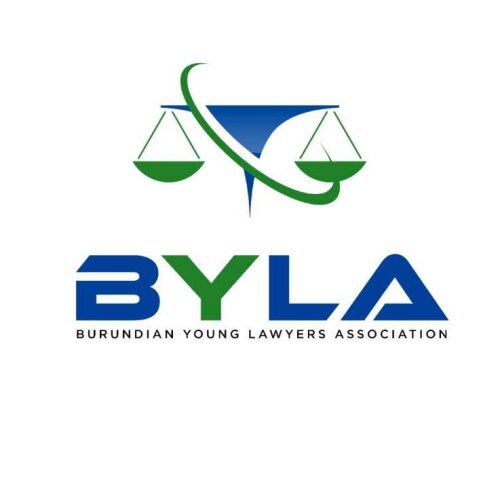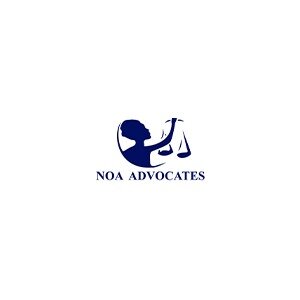Best Debt Capital Markets Lawyers in Burundi
Share your needs with us, get contacted by law firms.
Free. Takes 2 min.
Or refine your search by selecting a city:
List of the best lawyers in Burundi
About Debt Capital Markets Law in Burundi
Debt Capital Markets (DCM) in Burundi refer to the legal and financial mechanisms through which entities such as companies, government bodies, or financial institutions raise funds by issuing debt instruments. These instruments include government and corporate bonds, notes, or other forms of borrowing that are then traded by investors in the market. Although Burundi's debt capital markets are still developing, there has been increasing interest in leveraging these markets to support both public and private sector financing needs, especially as the country seeks to attract investment and expand economic growth.
Why You May Need a Lawyer
Legal guidance is often essential in the area of Debt Capital Markets due to the complexity and significant financial implications involved. Some common situations where you may need a lawyer include:
- Structuring or issuing bonds or other debt instruments for your business or government entity
- Ensuring compliance with local and regional securities regulations
- Negotiating terms and conditions of bond issues or syndicated loans
- Drafting and reviewing legal documents such as offering memoranda or prospectuses
- Facilitating registration of debt securities with relevant authorities
- Representing investors or issuers in disputes or defaults related to debt instruments
- Advising foreign investors or lenders interested in participating in the Burundian debt markets
- Assessing and managing risks related to cross-border financing
- Restructuring existing debt obligations or negotiating with creditors
- Understanding the tax implications of debt issuance and investment
Local Laws Overview
Debt Capital Markets in Burundi are primarily governed by national laws including commercial law, investment codes, and banking regulations, as well as regional frameworks such as those from the East African Community (EAC) and the Organization for the Harmonization of Business Law in Africa (OHADA). Here are some key aspects:
- The Central Bank of Burundi (Banque de la République du Burundi) regulates the issuance of government securities and supervises financial market activities.
- There is currently no formal stock exchange or bond market, so most debt instruments are issued through private placements or government auctions.
- Issuers of debt instruments must comply with disclosure requirements and obtain relevant approvals from financial regulators, particularly for large offerings or cross-border transactions.
- OHADA laws provide a unified legal framework for secured transactions, corporate structuring, and insolvency, which are important for lenders and investors.
- Anti-money laundering and anti-corruption regulations apply and must be thoroughly considered in all DCM transactions.
- Taxation of interest from debt instruments is subject to local tax laws and may be affected by double tax treaties.
Frequently Asked Questions
What is a debt instrument in Burundi?
A debt instrument is a tool that entities use to borrow funds from investors, promising to repay the principal with interest. Common examples in Burundi include government bonds and corporate notes.
Can foreign investors participate in Burundi's debt capital markets?
Yes, foreign investors can participate, but there are regulatory approvals and foreign exchange controls that may apply. It is important to consult with a legal advisor to understand the requirements and limitations.
What are the main regulatory bodies for Debt Capital Markets in Burundi?
The primary regulator is the Central Bank of Burundi, which oversees government and private debt issuance. Other relevant authorities may include the Ministry of Finance and the regional OHADA framework.
Does Burundi have a stock exchange or bond market?
Burundi does not currently have an active stock exchange or formal bond market. Most debt securities are issued through government channels, private placements, or bilateral agreements.
What documents are needed to issue a bond in Burundi?
You typically need to prepare a prospectus or offering memorandum, board resolutions, and registration documents. Regulatory clearance and compliance with disclosure rules are also required.
Are there restrictions on borrowing in foreign currencies?
Borrowing in foreign currencies is subject to Central Bank regulations and may require specific approvals. Foreign exchange risk and compliance with monetary policy guidelines should be carefully considered.
How are interest payments on debt instruments taxed?
Interest payments are generally subject to withholding tax under Burundian law. The applicable rates and exemptions depend on local tax regulations and any relevant treaties.
What legal protections exist for investors in Burundian debt instruments?
Investors are protected by contracts, regulations on disclosure, anti-fraud provisions, and relevant aspects of the OHADA legal system, especially regarding creditor rights in insolvency cases.
Can debt instruments be traded or transferred?
While there is no formal secondary market, debt instruments may be transferred through private transactions. Such transfers are typically governed by contract and may require notice to the issuer and regulatory approval.
What are the risks of participating in Burundi's debt capital markets?
Risks include credit risk, lack of liquidity, regulatory changes, foreign exchange volatility, and political or economic instability. Legal advice is essential to identify and manage these risks appropriately.
Additional Resources
Consider reaching out to the following organizations and resources for more information or support related to Debt Capital Markets in Burundi:
- The Central Bank of Burundi (Banque de la République du Burundi)
- Ministry of Finance, Budget, and Economic Planning
- Burundi Investment Promotion Authority (API)
- Local branches of international law firms and financial advisory firms
- The OHADA Regional Documentation Center
- East African Community Secretariat for regional guidelines
Next Steps
If you need legal assistance related to Debt Capital Markets in Burundi, start by gathering as much information as possible about your specific needs and objectives. Prepare all relevant documents, such as financial statements, business plans, and any previous correspondence with regulators or investors. Consult with a local lawyer or law firm specializing in capital markets or financial law. During your initial consultation, ask about their experience in similar matters, their approach to regulatory compliance, and their knowledge of both local and regional law. Take time to understand all your legal options and make informed decisions before proceeding with any capital market transaction.
Lawzana helps you find the best lawyers and law firms in Burundi through a curated and pre-screened list of qualified legal professionals. Our platform offers rankings and detailed profiles of attorneys and law firms, allowing you to compare based on practice areas, including Debt Capital Markets, experience, and client feedback.
Each profile includes a description of the firm's areas of practice, client reviews, team members and partners, year of establishment, spoken languages, office locations, contact information, social media presence, and any published articles or resources. Most firms on our platform speak English and are experienced in both local and international legal matters.
Get a quote from top-rated law firms in Burundi — quickly, securely, and without unnecessary hassle.
Disclaimer:
The information provided on this page is for general informational purposes only and does not constitute legal advice. While we strive to ensure the accuracy and relevance of the content, legal information may change over time, and interpretations of the law can vary. You should always consult with a qualified legal professional for advice specific to your situation.
We disclaim all liability for actions taken or not taken based on the content of this page. If you believe any information is incorrect or outdated, please contact us, and we will review and update it where appropriate.
Browse debt capital markets law firms by city in Burundi
Refine your search by selecting a city.












